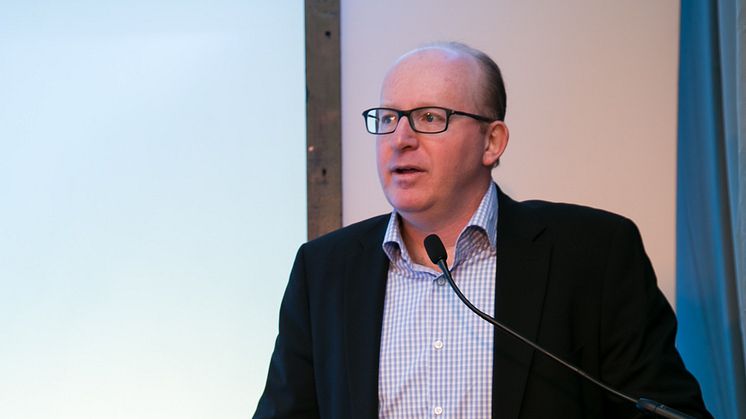
Press release -
South Africa gets a D for kids’ health
Discovery Vitality has announced South Africa’s results of the Healthy Active Kids Report Card 2014, which highlights the current state of South African children’s health.
Highlights from the report
The 2014 Healthy Active Kids South Africa (HAKSA) Report Card builds on the foundation of previous report cards from 2007 and 2010using peer reviewed research findings from the last five years and compares the different areas to see where South Africa has improved or not. The scientific panel was comprised of academics and experts from six universities, the Medical Research Council of South Africa, the Sports Science Institute of South Africa, the Heart and Stroke Foundation of South Africa, and Discovery Vitality.
While there are promising improvements reflected in the 2014 report card: fewer children are going to bed hungry, and more are physically active at school; overall, not nearly enough is being done to help children eat better and exercise more.
Ø Overall, South Africa has slid from a C- in 2010 to D grading in 2014.
Ø At best only 50% of learners are active enough.
Ø More than half of children do not have access to play equipment or recreation facilities.
Ø Children spend more time in front of screens large and small. Children watch almost three hours of television per weekday and even more on weekends.
Ø According to the research, less than 60% of South Africans are food secure.
Ø Poverty and escalating food prices remain a barrier to healthy eating.
Ø Fast food and soft drink consumption increased at alarming rates: More than two thirds of adolescents eat fast food at least three times a week; and as a nation, South Africans drink three times the global average of certain soft drinks.
Ø Even in families where resources are limited, children buy food at the school tuckshop or from informal vendors. Few school tuckshops offer healthier choices.
Ø Obesity rates are up from 2010: 27% of girls and 9% of boys aged 15 to 17 are overweight or obese.
For the first time, the report reveals how South Africa stacks up against 14 other countries when compared on nine health indicators. South Africa is in joint last place in sedentary behaviour, towards the bottom of the countries surveyed for school healthy lifestyle support and in the middle for organised sports participation, overall activity levels, active transport and community support. South Africa has been ranked near the top in terms of government strategies to promote healthy lifestyles in children. This suggests a policy-implementation gap.
“The information in the report card refers to children aged 6 to 18 years and provides an evidence-based benchmark and advocacy tool to help promote healthy habits. In order to enhance and protect our children’s health, we have to know where we are, and this data gives us that crucial starting point. It should also inform health policy and programmes going forward,” says Vicki Lambert, a co-author of the report and Professor of Human Biology, Head of the Division of Exercise Science and Sports Medicine, Faculty of Health Sciences, University of Cape Town.
Non-communicable diseases account for more than a third of all deaths in South Africa, with notable increases in the risk factors of inactivity and obesity. These trends are not unique to adults. “Children are increasingly affected by chronic diseases of lifestyle, therefore there is an urgent need to prevent physical inactivity and obesity in young people too,” said Dr Craig Nossel, Head of Vitality Wellness at Discovery, a sponsor of the advocacy document.
Patterns of rising obesity and inactivity in urban South African youth mirror global trends and have led to the shocking prediction that children born from 2000 onwards might, for the first time in many generations, have a shorter life expectancy than their parents. It is estimated that there are almost 19 million children in South Africa.
“What’s clear from the 2014 Healthy Active Kids South Africa Report Card is that it is time for parents to step up. Many parents in South Africa seem to be out of touch with their children’s dietary practices, including how pocket money was spent. In addition, there was remarkably low engagement with school sporting events as parents struggle with the competing priorities of work-life balance,” said Lambert.
While there are exciting and promising initiatives in South Africa, such as “open streets”, parkrun, and a number school based interventions, as well as major government investment in school-based sports activity, there is still a long way to go. When asked for a future vision for the next report card in 2016, the Scientific Advisory Group gave the following recommendations:
- Primary school children should ideally be weighed and have their height measured on an annual basis, and along with an annual health-related fitness assessment;
- Teachers should be provided with training and support to promote physical activity and deliver physical education in the curriculum.
- School tuckshops should be provided with national guidelines, and compliant schools recognised and acknowledged;
- Policy action should be taken by government with respect to the marketing of unhealthy foods and sugar-sweetened beverages to children;
- Parents, communities and non-government organisations should advocate for “safe streets” and equitable access to healthy foods, parks and recreational space;
- Inter-sectoral partnerships between government departments such as Health, Basic Education and Sports and Recreation, as well as with non-governmental organisations and the private sector, will help to close the implementation gaps;
The Scientific Advisory Group of the Healthy Active Kids South Africa Report Card and its sponsors, Discovery Vitality and the Sports Science Institute of South Africa, urge all South Africans to step up in every way they can to create a healthier future for our children and youth.
ENDS
For enquiries, please contact:
Thulaganyo Khensani Mthombeni
Reputation Management Consultant
Tel: +27 (0) 11 529 0091
Mobile: +27 (0) 71 886 9188
E-mail: Khensanimth@discovery.co.za
Categories
Discovery information
About Discovery Limited
Discovery Limited is a South African-founded financial services organisation that operates in the healthcare, life assurance, short-term insurance, savings and investment products and wellness markets. Founded in 1992 by the current Group Chief Executive Officer Adrian Gore, Discovery was guided by a clear core purpose – to make people healthier and to enhance and protect their lives. Underpinning this core purpose is the belief that through innovation Discovery can be a powerful market disruptor.
The company, with headquarters in Johannesburg, South Africa, has expanded its operations globally and currently serves over seven million clients across South Africa, the United Kingdom, the United States, China and Singapore. Vitality, Discovery’s wellness programme, is the world’s largest scientific, incentive-based wellness solution for individuals and corporates. The global Vitality membership base now exceeds 5.5 million lives in five markets.
Discovery is an authorised financial services provider. It trades on the Johannesburg Securities Exchange under the code “DSY”.
Follow us on Twitter @Discovery_SA







